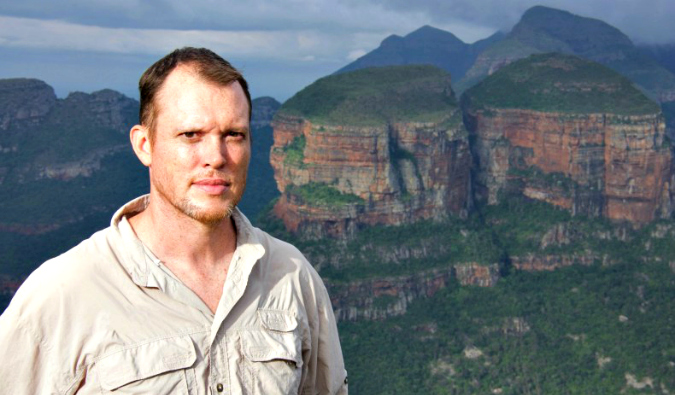 When I first started thinking about traveling the world, I bought a book most of you have probably heard of: Vagabonding: An Uncommon Guide to the Art of Long-Term World Travel by Rolf Potts. It was a treatise on the personal and world benefits of travel, especially long-term travel. That book put into words all the thoughts and feelings I had about travel at the time and helped ease a lot of the fears I had about my decision to quit my job and travel the world.
When I first started thinking about traveling the world, I bought a book most of you have probably heard of: Vagabonding: An Uncommon Guide to the Art of Long-Term World Travel by Rolf Potts. It was a treatise on the personal and world benefits of travel, especially long-term travel. That book put into words all the thoughts and feelings I had about travel at the time and helped ease a lot of the fears I had about my decision to quit my job and travel the world.
In my view, if long-term travel and backpacking had a bible, this would be it. No book has ever come as close to expressing the philosophy of long-term travel as this one. I still have my original copy and occasionally thumb through chapters.
Since starting this website, Rolf and I have become friends (it’s cool being friends with someone whose words changed your life) and this month marks the tenth anniversary of his book. Rolf is re-releasing the book in an audio format (it’s also the first book in the Tim Ferriss Book Club) and, to celebrate the book turning ten, I wanted to bring Rolf back on the site to talk about the fine art of vagabonding (I first interviewed him in 2009).
Nomadic Matt: O.K., first question: How do you feel that your baby is ten years old? What kind of emotions does that make you feel?
Rolf Potts: It feels great. Especially when, so far as I can tell, more people are reading it ten years on than did when it first came out. I had high hopes when the book debuted, but the response continues to exceed my expectations.
How do you feel about creating a book that people view as the bible of long-term travel?
It’s humbling. I remember all those months I spent alone in a room in southern Thailand, putting the book together sentence by sentence. In that situation it’s hard to know what will come of your labors, even if it feels like you’re creating something special. The initial response to the book was encouraging, especially considering that it came out around the time the U.S. military was invading Iraq and most news outlets were shying away from travel. It wasn’t until a couple of years after the book’s debut, when vagabonders started telling me about pirated copies for sale in the backpacker ghettos of Vietnam, that I knew it had caught on at a grassroots level.
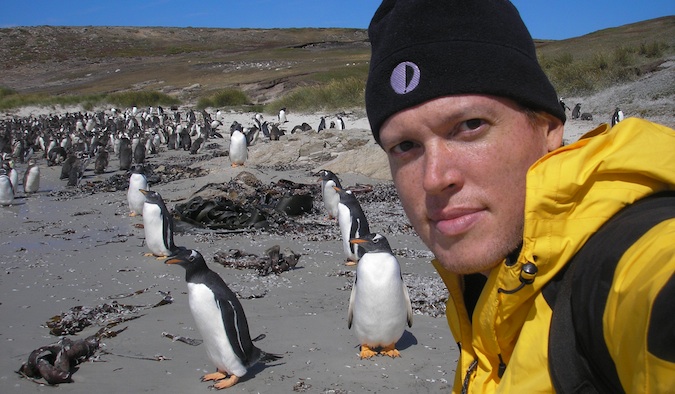
When I first interviewed you in 2009, my site wasn’t even a year old and I wasn’t sure what I wanted to do. When you started writing this book, did you have any idea it would take you in the direction it has?
I think it’s hard to ever really know where you’re headed when you undertake a project like that. When I was first approached about writing the book I didn’t have grand ambitions to become a travel guru. The travel stories I’d been writing for Salon were reportorial and narrative, and rarely offered much in the way of travel advice. But Salon readers kept emailing and asking me how I was able to keep traveling for so long, and the suggestions I posted on my website tended to be philosophical in nature. At the time it didn’t occur to me to post budgeting strategies or packing tips, since I figured readers could figure that out on their own.
The most important motivating factors in my long-term travel career had been existential ones — factors that were rooted in cultivating a mindset that made vagabonding possible — so that’s what I detailed on my website, and that’s what caught the attention of an editor at Random House. Once I began writing Vagabonding the book took on a broad practical component, but its philosophical core is what resonated most with readers.
How did the success of the book shape your desires for being a writer? And is it hard to live up to the expectations such a big first book can create?
Because from the outset I was more vested in reportorial-narrative travel writing, Vagabonding has ended up being a nice complement to the rest of my career. In the introduction chapter of the book, I poke fun at the idea of creating a “Vagabonding publishing empire,” before going on to declare that I planned to write the book in such a way that it didn’t require sequels or spinoffs. So it’s been nice not to have to compete against myself. My second book, Marco Polo Didn’t Go There, won lots of awards, but it hasn’t sold nearly as many copies as Vagabonding — and that makes sense, because it’s a more specialized, narrative book, less given to broad advice. Vagabonding is for anyone who’s ever dreamed of travel, whereas the Marco Polo book has been embraced by a more specialized readership, one that is already interested in travel and travel writing.
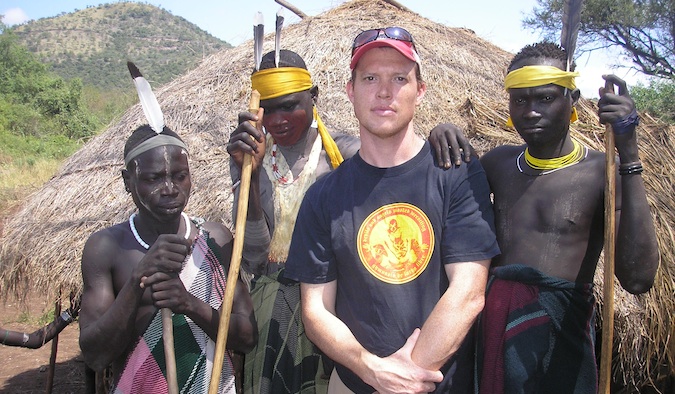
So, while my public speaking gigs still tend to focus on vagabonding, I’ve taken my creative life in new directions. Instead of trying to live up to in-the-box expectations, I’ve taken on video and graphic narrative projects, I’ve done long-form reportage for Sports Illustrated, I’ve taught writing at Penn and Yale and the Paris American Academy. I may never write a book that proves as popular as Vagabonding, but I’d reckon that allows me to follow my heart and do what interests me rather than try to re-create or outdo my first book.
Many of your experiences in the book happened when you were young. When you think back to the book and re-read, have any of your thoughts and feelings changed?
I think those early travel experiences are the best ones to draw from when writing a book like Vagabonding, since those are the experiences readers will identify with. As I’m sure you know, there’s a point at which a lot of the motivations and routines of long-term travel become internalized and intuitive. But you don’t want to rely too much on a voice that infers travel as something normal; you want to convey how exciting and intimidating and extraordinary travel can be, and that’s why you draw so much on those early experiences. Some of those experiences happened almost 20 years ago now, but they still resonate with me. When I was listening to working-edits of the Vagabonding audiobook a few weeks ago, I kept getting caught up in the same feelings of wanderlust I felt when I was just starting out as a traveler. So the thoughts and feelings I convey in the book haven’t changed; I’ve just grown a little older since I wrote them down.
How do you feel about how traveling and backpacking has evolved?
It feels like the prospect of traveling and backpacking gets less intimidating with each passing year. There is just so much more information out there, so many ways to get online and see how people are doing it in real-time, so many gadgets and apps that make the workaday details of travel easier. This in mind, there’s less excuse than ever for not traveling. In some ways, long-term travel has become so easy that I kind of miss the old difficulties and hardships that made travel so surprising and rewarding — yet I like to think that today’s vagabonders can get just as much from the experience as those of a generation ago.
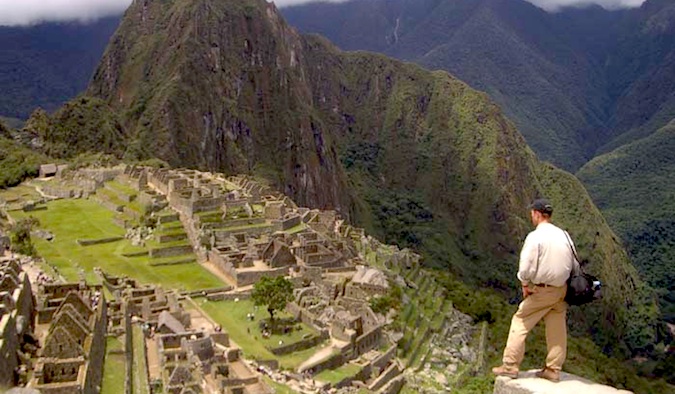
This is often just a matter of embracing the present moment for what it is and not worrying about the presumed glories of some bygone era. A few years ago I was giving a talk at a university in Italy, and the students kept telling me how jealous they were that I’d been to Southeast Asia in 1999, when “real travel” was still possible there. I had to laugh, since in 1999 backpackers often complained about how they wished they’d been to Thailand in, say, 1979. No doubt the backpackers of 1979 also looked back with fantasies of an even earlier era. But of course all we really have is the present moment, and vagabonding can be amazing as ever if you allow it to be, regardless of how things have changed.
I feel too many travelers/potential travelers long for this “real” experience that is, in part, mythic fantasy based on humans’ innate desire to discover. We all want to unleash our inner Indiana Jones. As you said, the core philosophical nature of the book hasn’t changed. Do you think part of the reason why your book has done well is that it articulates that desire so effectively?
I spend a lot of time in the book downplaying fantasies and daydreams, and encouraging readers to embrace reality — since reality itself is what will deliver the complex and challenging and utterly amazing experiences that make the journey worthwhile. I also talk about how getting off the beaten path is a lot easier than it seems. One reason backpackers have always worried that destinations are getting “spoiled” is that they instinctively seek out other backpackers. Thus, surrounded by other travelers at a given hangout, they assume the whole world has been discovered. As I point out in Vagabonding, you don’t need to be Indiana Jones to discover something new and amazing; you usually just have to walk 20 minutes in any direction, or take a bus to a town that isn’t listed in your guidebook. So yes, I try to strike a balance between acknowledging the desire to experience something “real,” and articulating how simple and counterintuitive it is to find “real” experiences on the road.
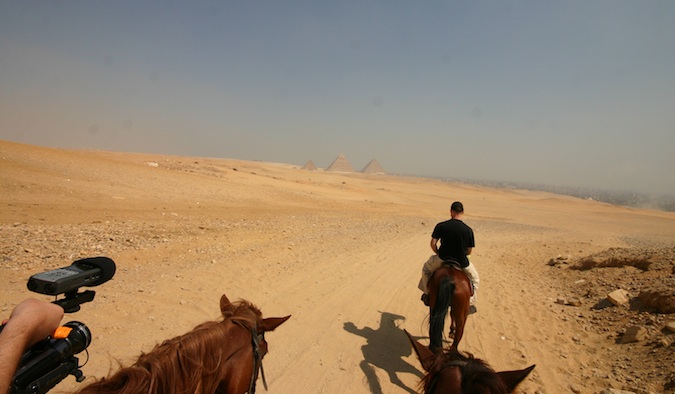
In our first interview, I asked you what advice you would have for a new traveler. You said “slow down and enjoy yourself.” Four years later, is that still your number one piece of advice?
Absolutely — and for all the reasons we’ve just been talking about. Thanks to technology, it’s easier than ever to know what you’re missing in 100 other places and thus miss out on where you are. Moreover, the temptation is greater than ever to micromanage each step of your journey, to the point where you end up chained to the abstraction of an itinerary rather than trusting your instincts and responding to what’s right in front of you. Forcing yourself to slow down and improvise your way through each new day on the road is the best way to break out of the habits of home and embrace the amazing possibilities a journey promises.
The new audio version of Rolf’s classic can be found on Audible. In celebration of the re-release, he created some videos for the book and I want to share the below about why “someday” will never come:
That excerpt comes from the first section of his book and it sums up perfectly why I made the decision to travel the world: you can’t put off your dreams until tomorrow.
Rolf’s book was extremely influential in my development as a traveler. If you haven’t read it yet, I strongly encourage you to do so. Vagabonding will leave you confident that your decision to travel was the right one.
没有评论:
发表评论